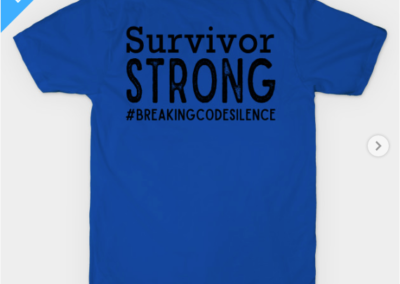In this post, we will examine the testimony of Victim 2’s mother. We’ve removed any identifying information for their own privacy. As with all these articles, we will call out the parts we feel are important to highlight in the body of the article and a link to the full transcript will be provided below.
The victim was sent to Midwest Academy to cope with issues such as bipolar disorder and ADHD which are issues that can be helped with the right medication balance and coping skills. It was not something you would treat with extended amounts of isolation or tough love.
Q. What was going on with Bxxxxxx that made you start looking for some type of placement for him?
A. Well, Bxxxxxx have ADHD when he’s around 4, 4 and a half years old. And when Bxxxxxx about 10 years old, he diagnosed with bipolar. And so he have a lot of problem at school with his bipolar and his ADHD. So I search online to see where I could send my son to get the better structure, make him better kid. So that’s where I found Midwest Academy.
According to the mother, Midwest Academy presented itself as a school that would handle the kind of kids with her son’s problems (ADHD, bipolar disorder, etc) and accepted him after getting a history.
Q. How did you find Midwest Academy?
A. I went online and we search too many school. And I saw the information about Midwest that matching what Bxxxxxx–for Bxxxxxx.
Q. What matched? What was on this website that you thought, wow, this looks like a good match?
A. For ADHD, bipolar, help him structure, him to be better when he get out high school, help his behavior.
Q. All right. So you see this online. What do you do?
A. So I call. Contact with a gentleman. I forgot his name. I have it in my phone. And he’s contact me and tell me what to do, what the requirement.
Q. How to apply?
A. Yes.
Q. Did you fill out a form?
A. Yes. The requirement is tell what is Bxxxxxx history, what he been through other time, if he ever been in trouble, what have he been charge, what he do. So everything is in application. They have to know before they accept Bxxxxxx.
Q. And you put all that information in?
A. Majority, yes.
Q. Was he accepted?
A. Yes.
The mother was told that the door to OSS was normally open.
A. How the school discipline. How the kid follow the school rule here. If they get in trouble they would get locked in the OSS, which is the private room that video monitor, that upper class would sit there and monitor four or five room in there. If the kid act out or shouting with another kid in the area, the door will be shut, but normally the door will be open.
Q. You were told that normally the door is left open?
A. Yes
The mother was told about OSS but didn’t know that her child would have to sit structure the entire time. She was getting calls initially every time her son went to OSS and eventually it was just emails.
Q. What was your understanding–was it explained to you that day how you would be informed if Bxxxxxx was in OSS?
A. If he sleep there they will put a little 4 or 5-inch mattress–thickness of a mattress in for him sleep at night and then will take it out in the morning. If his meal be fed, they bring it in the room for him. And they didn’t told me anything about how he sit or he stand or that he had to raise a hand to have to move around.
Q. You weren’t told that he had to sit in structure in there?
A. No.
Q. Did you receive phone calls from the school if Bxxxxxx was put in OSS?
A. Majority, yes.
Q. Did you say– What?
A. Yes.
Q. But what did you–
A. Most of the time, yes.
Q. Did you get a lot of phone calls about that?
A. Eventually, e-mail.
Q. So instead of phone calls you started getting e-mails about it?
A. Most of it is e-mail.
Q. And who is calling and e-mailing you about this?
A. I remember Mr. Don is majority, is gentleman that send me e-mail and call.
The victim’s mom details some of what would happen in OSS as she understood it. While her son was sometimes put in there for being physically aggressive, he was always placed in OSS for little things such as not being in line, running off the line, shouting in line, or not following instructions. Remember: In this victim’s testimony, he was in OSS for 2-4 days at a time every time and never got out in just 24 hours.
A. He be in OSS. Before he get out, he have to do structure, and sometime Bxxxxxx broke structure, and they have to start all over again. And he have to write like 2–what you call it–2 piece of paper.
Q. An essay?
A. Yes. And then when he in there longer, it have to be 3 or 4 pages before he can get out. And one time I noticed that Bxxxxxx was in there more than a week.
Q. Did you say anything about that?
A. I think I did e-mail to Don and ask why, you know, and stuff.
Q. What was going on?
A. Yes.
Q. What types of things were you being informed of as to why he was going into OSS?
A. Well, sometime I receive a letter from Bxxxxxx when he could get to write home a letter. He say just was a little thing or Mr. Don say, he’s supposed to be in line, to go to different class, or go to here and there, and just run off the line and he get punished for just a little thing, or shout in line, or not follow instructions.
Q. Now, there was sometimes, too, that you were told he was being physically aggressive or assaulting someone or things like that; correct?
A. Yes. When they try to put him back in line or something. He–Mr. Don told me he would blow up at them.
The mother saw her son three months after dropping him off and he had lost over 35 pounds. She was concerned and could barely recognize her child. When she asked Ben Trane about it, he said he was completely healthy and within normal guidelines.
Q. So you dropped him off in September, and then the first time you saw him again was in December; is that right?
A. Yes.
Q. Did you notice anything different about him?
A. I saw a whole bunch of kids coming out from a group, and see this little dude and I cannot recognize him. I go, who’s that little tiny kid? And it took me a while because he has his hair cut all off, buzz haircut, and the next thing I know is, that’s my son that I did not recognize.
Q. He looked like he had lost a lot of weight?
A. Yes. He look like he go from 135 to 90-something pound.
Q. Were you concerned?
A. Yes, I did.
Q. Did you talk to anybody about that?
A. I ask Mr. Ben, and I ask Mr. Don, and Mr. Bill said he check with the nurse and everything. Bxxxxxx, you know, metabolize and his health and everything, they said, meet the guideline, that he don’t need to be over for his body and his weight.
Q. So the Defendant told you that he was at his healthy guidelines and he was fine?
A. Yes.
Her son would write to her about the horrible conditions and things he faced but she was told by Ben Trane that she should ignore all those things and that children are just trying to manipulate when they send home notes like that.
Q. Did Bxxxxxx–you said he doesn’t say much about what’s going on. Did he talk about what was happening at the academy?
A. Well, when he sent a letter–in the beginning of a letter, he so upset, mad; you don’t know how they treat me here; you don’t know when they restrain me; I get hurt; I get bleed; I get scar; I get bruise; you don’t know what I have to deal with here. And then later by the end of the letter, he calmed down. But he didn’t never mention, like, how he get hurt, pain, or what. And at the end of the letter, okay, Mommy, I love you. Tell the family I love them, I miss them. So it’s about same. So that’s why I never concern. And then when I see him, he just so happy to see me and hug me and just laid in my lap and bring him all the Asian food that he asking for. He just laid in my lap and hugged me. He didn’t say much.
Q. Is that what he did most of the time the first time when you saw him?
A. Yes.
Q. He just sat there and let you hug him?
A. Yes. And then we sit on sofa, and he put his head on my lap, just act like a baby and laid in my lap.
Q. And you had several letters from Bxxxxxx like that; correct?
A. Yes.
Q. Did you express any concerns about that to the academy, that you were getting these kinds of letters?
A. I did.
Q. And what were you told?
A. I did majority talk to Mr. Don, his rep. And when I see that he say: fine, if you want me to get kill here and you don’t care about me, or I will do this, do that. So I let Mr. Don know what Bxxxxxx wrote in the letter to concern and look out. We just communicate, but don’t say much about what they going to do, or they say they going to watch out for him. That’s what Mr. Don say.
Q. That they’ll watch out for him?
A. Yes.
Q. During your parenting classes at Midwest Academy, were you taught that a lot of times kids will say those kinds of things because they’re trying to manipulate their parents?
A. Yes. So Mr. Ben and other staff members say, don’t listen to your kid because they just here, they’re new. They just here about a few month, so of course they cannot deal with the structure here and they want to go home. So that’s how they trying you to get them home. So just ignore them. Give them a few more month to see how thing going, so that’s why I never concern.
Q. And you said that Mr. Ben said that
he did a lot of those parenting seminars?
A. Yes.
Her son was in Midwest Academy from September to March. He had lost over 30 pounds between September and December and spent most of his time in OSS. It wasn’t until the end of February that Ben Trane determined that her son might not be a good fit for Midwest Academy. We believe that DHS had become involved at that point.
Q. Prior to DHS making that phone call, had you been notified by the academy that at this point maybe Bxxxxxx wasn’t a good fit here?
A. Yes. After the parenting class, I went home. And somehow around February– almost the end of February, the middle of February or around there, Mr. Ben call and say he don’t think the school is work good for Bxxxxxx, but we try to come up with different program to see if Bxxxxxx will follow instructions, to see if Bxxxxxx will be good at this program, and we go from there.
Her son could barely eat when he came home and had to quickly be hospitalized for malnutrition due to his time in Midwest Academy. He complained about his body being stiff and hurting. It took him months to get back to normal eating.
Q. After Bxxxxxx returned home, how was he?
A. It took us like seven, seven and a half hours to get back to XXXX. So when I drove Bxxxxxx in the car, his hand and wrist always turn because he say it’s hurting him. His neck, he always pop his neck. He told me his body is tight. He have to move around a lot. Next day I took Bxxxxxx to XXXX within an hour to eat at the restaurant that he really like. Majority, Bxxxxxx is a big eater. But that day we took some sushi and Bxxxxxx barely eat couple piece. And we get ready go home back to XXXX. On the way home, Bxxxxxx say, Mom, you need take me to the emergency. I ask him why. And he say, because I don’t feel good. My body is all tied up, and I feel so weak. My leg is numb. And I told Bxxxxxx, I have to go home to get the insurance card. I’m crazy. It should be on a chain at the hospital, but I told him, just hold on, Mommy have to go home to get the insurance card for you to admit to hospital. So I went home and get the insurance card, took Bxxxxxx to the nearest hospital. I told them what happened. Bxxxxxx just coming home. They told me to take Bxxxxxx straight to the XXX Hospital in downtown.
Q. So you went to an emergency room close to your home?
A. Yes.
Q. And when you are there, they ended up sending you to the hospital downtown?
A. The XXXX Hospital.
Q. The XXXX Hospital?
A. Yes. They contact the XXX Hospital, so when we get there they’re waiting for us at the door.
Q. So what happened with Bxxxxxx?
A. So they keep Bxxxxxx there to test Bxxxxxx out for twenty-four hour to see if he have hurt anywhere else, his nutritions, his mental, everything.
Q. Did they say he was malnutritioned?
A. Yes, they did.
Q. Did he have to have IV fluids and some nutrients pumped into him?
A. Yes, he did.
Q. And so you got to go home about a day later from the hospital; correct?
A. Yes.
Q. Was there a period of time that it took Bxxxxxx to get back to what you considered his normal eating?
A. A few month later.
After the victim came home, his mother found that he had new problems which she attributed to his time at Midwest Academy. Her son was a lot more emotional and cried a lot more.
Q. After Bxxxxxx came home, did he continue to have problems?
A. Yes. After Bxxxxxx come home, we try to get him enrolled back to school. It took a while. He have to go through all the processing and the doctor and everything.
Q. But was he continuing to have– maybe I should say, was he having some emotional problems that you hadn’t seen before?
A. Yes. When I shout at him or yell at him and say thing to him, and he was really emotion and cry and lay there and shout and yell: you don’t know what I have been through at Midwest; how they treated me. That’s when he open up and tell you what’s going on.
Q. So you didn’t know everything until a little bit later on after he had come home?
A. Yes. After he come home and he’s upset and mad and he speak out.
Q. You said he cried a lot?
A. Yes.
Q. And that was maybe different than before; is that right?
A. Yes.
Q. Did he talk about locked doors or show different behavior with different types of rooms?
A. After he went home, yes.
A. He just more upset and more easily crying and upset.
Q. Did you get him some counseling?
A. The school that he went to, yes.
Q. And he struggled for a while; is that right?
A. Yes.
Q. Is he at a place now where he is doing a lot better?
A. Yes. The school have counseling for him, and I also have outside counseling for Bxxxxxx every other week.
Q. And he still goes to a special school?
A. Yes, the same school.











